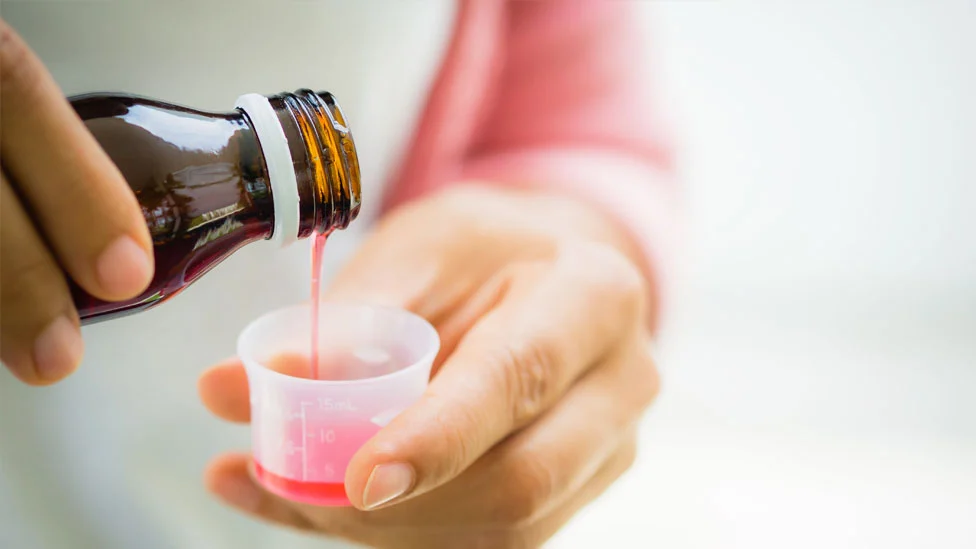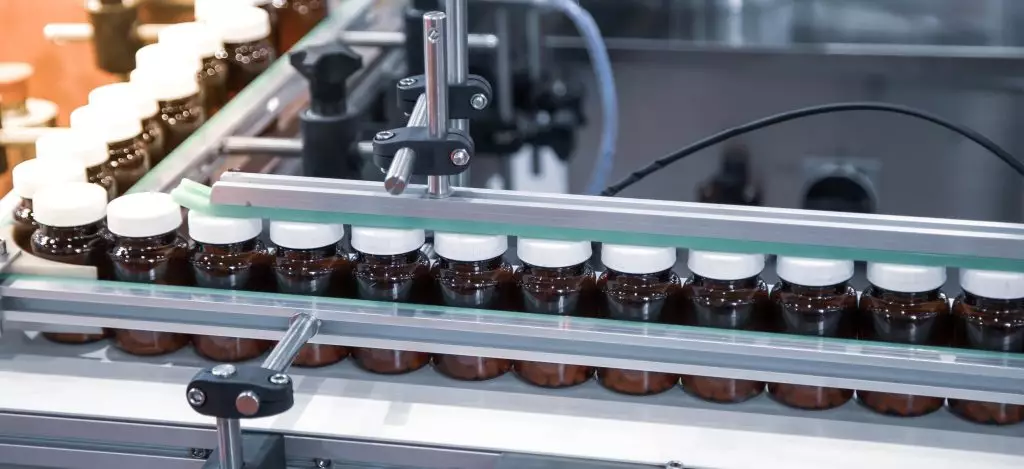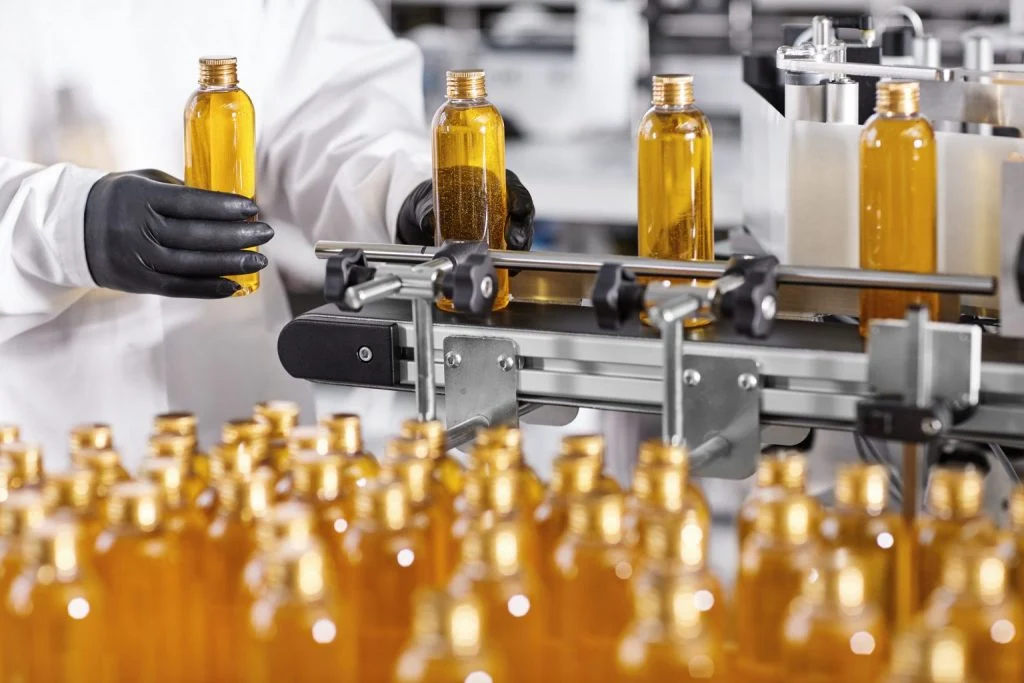Quell'idea brillante per un integratore liquido che avete abbozzato su un tovagliolo? Quella tintura di erbe unica nel suo genere o quella vitamina liquida di nuova generazione che sapete mancare sul mercato? È più vicina a diventare realtà di quanto possiate pensare. Ma tra la scintilla iniziale dell'ispirazione e un prodotto tangibile nelle mani dei vostri clienti c'è una delle decisioni più critiche che possiate mai prendere: la scelta del prodotto giusto. partner di produzione.
Non si tratta solo di trovare una fabbrica. Si tratta di trovare un copilota per il viaggio del vostro marchio. Il partner giusto eleverà la vostra visione, garantirà che il vostro prodotto sia sicuro ed efficace e vi aiuterà a destreggiarvi tra le complessità del settore. Quello sbagliato può portare a scadenze non rispettate, problemi di qualità e una reputazione danneggiata prima ancora di iniziare.
Questa guida è stata concepita come un amico esperto del settore, che vi accompagnerà attraverso l'intero processo. Demistificheremo il gergo, evidenzieremo i dettagli critici e vi forniremo una tabella di marcia pratica per trovare un produttore di integratori liquidi che aiuti il vostro marchio a prosperare.

Perché gli integratori liquidi? Capire il mercato e la vostra opportunità
Prima di addentrarci nel "come", ribadiamo il "perché". Siete sulla strada giusta. Il mercato sta sperimentando una notevole "stanchezza da pillola". I consumatori cercano attivamente modi più semplici ed efficaci per assumere gli integratori e le formulazioni liquide sono perfettamente in grado di soddisfare questa richiesta.
Ecco il vantaggio competitivo che state sfruttando:
- Biodisponibilità superiore: Per molti ingredienti, l'organismo può assorbirli più velocemente ed efficacemente in forma liquida rispetto a una pillola solida che deve essere prima scomposta. Si tratta di un punto di forza del marketing, che ha risonanza tra i consumatori attenti alla salute.
- Flessibilità di dosaggio: I liquidi consentono un dosaggio preciso e personalizzabile. Questo è un enorme vantaggio per i prodotti destinati ai bambini, agli anziani o a chiunque necessiti di un dosaggio specifico che le capsule standard non possono offrire.
- Esperienza migliorata: Siamo onesti: ingoiare una manciata di pillole non è piacevole. Un prodotto ben aromatizzato integratore liquidoLa tintura o il bicchierino funzionale offrono un rituale quotidiano molto più piacevole, migliorando la compliance e la fedeltà dei clienti.
Il cambiamento è chiaro. Scegliendo di sviluppare un prodotto liquido, non si lancia solo un integratore, ma si offre una soluzione moderna.
I modelli di partenariato manifatturiero: Qual è quello giusto per voi?
Il termine "produttore" può avere diversi significati. Comprendere i modelli principali è il primo passo per trovare quello più adatto alla fase e alla visione della vostra azienda.
Produzione a contratto (formulazione personalizzata)
Questo è l'abito su misura del mondo degli integratori. Si arriva al produttore con un'idea di prodotto unica e si lavora con lui per sviluppare una formula proprietaria da zero.
- A chi è rivolto: Marchi che vogliono innovare e creare un prodotto completamente unico con una formula protetta. Avete una visione forte e volete costruire un marchio con un netto vantaggio competitivo.
- Pro: Piena proprietà della formula, alto potenziale di differenziazione del marchio, possibilità di formulare specifiche indicazioni di efficacia.
- Contro: Investimenti iniziali più elevati in ricerca e sviluppo (R&S), tempi di commercializzazione più lunghi.
Etichetta privata (etichetta bianca)
Si tratta di scegliere da un menu di formule collaudate e pronte per il mercato. Il produttore ha già sviluppato e testato una gamma di prodotti (come un multivitaminico liquido o uno sciroppo di sambuco). Voi scegliete un prodotto, create la vostra etichetta e lo vendete come vostro.
- A chi è rivolto: Nuovi imprenditori, venditori di e-commerce o marchi alla ricerca del modo più rapido ed economico per entrare nel mercato.
- Pro: Costi di avviamento inferiori, tempi di lancio significativamente più rapidi, formula già testata e stabile.
- Contro: La formula non è esclusiva del vostro marchio; i concorrenti potrebbero vendere un prodotto molto simile.
Il mio consiglio? Non vederla come un'opzione minore. A marchio privato di alta qualità può essere il veicolo perfetto per costruire il vostro marchio, creare una base di clienti e generare un flusso di cassa per future formulazioni personalizzate.
7 fattori critici per valutare il produttore di integratori liquidi
Una volta stabilito il modello di cui avete bisogno, è il momento di iniziare a valutare i potenziali partner. Questa è la fase di due diligence. Non badate alle brochure patinate e concentratevi su queste sette aree non negoziabili.
1. Certificazioni e conformità normativa (gli elementi non negoziabili)
Questo è il fondamento della sicurezza e della credibilità del vostro marchio. Se un potenziale partner non è chiaro su questi punti, allontanatevi.
- Certificato cGMP: Questa è la linea di base assoluta. Le Current Good Manufacturing Practices sono regolamenti applicati dalla FDA. Una certificazione cGMP significa che la struttura viene sottoposta a controlli per garantire che i prodotti siano costantemente prodotti e controllati secondo gli standard di qualità. È il vostro principale scudo contro la contaminazione, l'etichettatura non corretta e i prodotti non sicuri.
- FDA Struttura registrata: La struttura deve essere registrata presso la FDA. Si tratta di un requisito legale per qualsiasi struttura che produce, lavora, confeziona o detiene integratori alimentari destinati al consumo negli Stati Uniti.
- Certificazioni di terze parti (il Gold Standard): Cercate certificazioni aggiuntive come NSF Internazionale o USDA Organic. Non si tratta di semplici loghi, ma di un impegno più profondo nei confronti della qualità, che richiede il superamento di verifiche rigorose e indipendenti. Sono potenti segnali di fiducia per i vostri clienti.

2. Capacità di R&S e di formulazione
Un grande produttore è un partner per l'innovazione. Valutate le loro competenze scientifiche. Hanno nel loro staff formulatori e scienziati alimentari esperti? Possono aiutarvi con l'aromatizzazione, l'edulcorazione (utilizzando opzioni naturali come il frutto di monaco o la stevia) e garantendo che il prodotto finale sia stabile ed efficace? Anche se state iniziando con un marchio privato prodotto, sapere che hanno una forte capacità di ricerca e sviluppo è un buon segno per la crescita futura.
3. Approvvigionamento e controllo qualità degli ingredienti
Il vostro prodotto finale è buono solo quanto i suoi ingredienti grezzi. Fate domande difficili:
- "Da dove vi rifornite di ingredienti?".
- "Come qualificate i vostri fornitori?".
- "Quali test eseguite sulle materie prime in entrata?". (Dovrebbero essere testati per verificare l'identità, la purezza e i contaminanti).
- "Potete fornire un certificato di analisi (CofA) per ogni ingrediente?".
La trasparenza nella catena di fornitura è un indicatore diretto di un produttore orientato alla qualità.
4. Capacità produttiva e tempi di consegna
Pensate al vostro futuro. Un produttore potrebbe essere perfetto per la vostra produzione iniziale di 1.000 unità, ma è in grado di gestire un ordine di 50.000 unità quando otterrete un importante cliente al dettaglio? Discutete della loro capacità produttiva e dei tempi di consegna tipici (il tempo che intercorre tra l'invio dell'ordine e la spedizione). Un partner affidabile vi darà tempistiche chiare e realistiche.
5. Quantità minima d'ordine (MOQ)
Questo è spesso l'ostacolo più scoraggiante per le startup. Il MOQ è la dimensione minima dell'ordine che un produttore è disposto a produrre. Per le formule personalizzate può essere elevato. Siate sinceri sul vostro budget e sui volumi previsti. Un buon partner per un nuovo marchio sarà quello che offre MOQ ragionevoli o flessibili, consentendovi di lanciare il prodotto senza assumervi un rischio eccessivo di inventario.
6. Opzioni di confezionamento, imbottigliamento ed etichettatura
Il contenitore fa parte dell'esperienza del prodotto. Il produttore offre una varietà di opzioni di confezionamento? (ad esempio, flaconi di vetro o plastica, contagocce, pompe, buste monodose). È in grado di fornire assistenza per la conformità delle etichette, assicurando che siano conformi a tutti i requisiti della FDA? Un partner che offra una soluzione completa, "chiavi in mano", dal liquido al prodotto finito, vi farà risparmiare immensi problemi di tempo e di coordinamento.
7. Comunicazione e gestione del progetto
Durante il processo di produzione, avrete domande e bisogno di aggiornamenti. Ho visto partnership promettenti fallire semplicemente a causa della scarsa comunicazione. Avete bisogno di un punto di contatto dedicato che sia reattivo, competente e trasparente. Durante le prime conversazioni, prestate molta attenzione a come vi trattano. Sono veloci nel rispondere? Rispondono alle vostre domande in modo esauriente? È un'anteprima del vostro futuro rapporto di lavoro.

La tua roadmap: Il processo passo dopo passo dall'idea al mercato
Navigare nel processo di produzione può sembrare travolgente. Ecco una tabella di marcia semplificata su cosa aspettarsi:
- Richiesta iniziale e NDA: Ci si mette in contatto, si discute inizialmente e si firma un accordo di non divulgazione per proteggere la propria idea.
- Definizione del progetto e quotazione: Voi fornite i dettagli del vostro prodotto. L'azienda fornisce un preventivo preliminare basato su formula, ingredienti, confezione e quantità.
- R&S e campionamento al banco: Per le formule personalizzate, il loro laboratorio sviluppa e invia campioni da testare e approvare. Questa fase prevede la messa a punto di sapori, colori e consistenze fino a raggiungere la perfezione.
- Preventivo finale e accordo di produzione: Una volta approvato il campione, si riceve il prezzo finale e si firma un accordo formale.
- Produzione: Si procurano gli ingredienti, miscelano la formula e la fanno passare alla linea di produzione.
- Test di qualità: Il prodotto finito viene testato per garantire la conformità a tutte le specifiche di sicurezza e qualità.
- Imballaggio e spedizione: Il vostro prodotto viene imbottigliato, etichettato e spedito al vostro magazzino o centro di distribuzione designato.
Una lista di controllo pratica: Domande chiave da porre a un potenziale produttore
Affrontate le vostre conversazioni preparati. Ecco le domande essenziali da porre a ogni potenziale partner:
- Potete fornire una copia del vostro certificato cGMP e di altre certificazioni di terzi?
- Qual è il vostro MOQ tipico per un prodotto come il mio?
- Quali sono i vostri tempi di consegna standard per una prima produzione e per i riordini?
- Può illustrarmi il vostro processo di controllo della qualità, dalle materie prime ai prodotti finiti?
- Chi sarà il mio punto di contatto dedicato?
- Avete già avuto esperienze di produzione di prodotti con [indicare un ingrediente o una caratteristica chiave]?
- Può fornire referenze di altri marchi con cui ha lavorato?

Domande frequenti (FAQ)
D: Quanto costa produrre integratori liquidi?
R: Il costo varia molto in base ai costi degli ingredienti, alla complessità della formula, alle scelte di confezionamento e alla quantità ordinata. Un semplice prodotto a marchio privato può costare pochi dollari per unità, mentre una formula personalizzata complessa potrebbe essere molto più costosa. Chiedete sempre preventivi dettagliati a più produttori.
D: Qual è la differenza tra un co-packer e un produttore a contratto?
R: Un produttore a contratto è in genere coinvolto nell'intero processo, compresi la formulazione e lo sviluppo. Un co-packer (confezionatore a contratto) di solito si occupa solo della miscelazione e del confezionamento della formula che gli viene fornita. Per la maggior parte dei nuovi marchi, un produttore a contratto a servizio completo è la scelta migliore.
D: Come posso proteggere la mia formula personalizzata?
R: Questo si ottiene attraverso una combinazione di un solido accordo di produzione e di un accordo di non divulgazione (NDA). La vostra formula è una vostra proprietà intellettuale e un produttore affidabile la rispetterà e la proteggerà.
Siete pronti a dare vita al vostro integratore liquido?
La scelta di un produttore di integratori liquidi è la decisione più importante per la catena di approvvigionamento. È una vera e propria partnership. Prendete tempo, fate ricerche e fidatevi del vostro istinto. Cercate un partner che non solo sia capace nella sua struttura, ma che abbia anche investito nel successo del vostro marchio.
Quando si trova questa corrispondenza, il complesso processo di produzione si trasforma in un'entusiasmante collaborazione, trasformando la vostra visione da un sogno su un tovagliolo in un prodotto che può davvero aiutare le persone.



